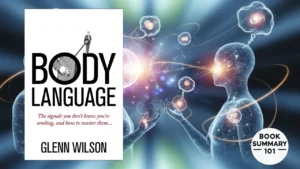In Hell Yeah or No, Derek Sivers asks us to pause, reflect, and question our decisions. Are we choosing things that truly light us up, or just saying “yes” out of obligation, habit, or fear of missing out? Sivers, a well-known entrepreneur, musician, and philosopher, breaks down his journey to living more intentionally and offers his practical wisdom to help readers do the same.
So, how do we cut through the noise and focus on what really matters? Let’s dive into what Sivers shares and how it might resonate with your own life.
Why Read This Book?
If you’ve ever felt overwhelmed by your commitments or constantly in search of meaning, Hell Yeah or No might be the dose of clarity you need. This book is all about getting off autopilot and making choices that reflect your authentic desires. With 37 short, engaging chapters, Sivers doesn’t just tell us to focus on what matters—he shows us how.
He’s been there, done that, and figured out a way to live with more intention. Each chapter offers actionable insights, making it easy to digest yet impactful. Here’s what I loved about the book and why you might too:
- It’s Practical: Sivers doesn’t expect you to overhaul your life in one go. Instead, he suggests small changes that you can apply immediately.
- It’s Relatable: The book isn’t full of lofty theories; it’s grounded in real experiences, both Sivers’ and those of people he’s met.
- It’s Quick and Powerful: You can read it in a weekend, but its ideas will stick with you for a lifetime.
Absolutely! Let’s dive deeper into each takeaway from Hell Yeah or No to give a clearer picture of how Derek Sivers’ principles can transform how we approach decision-making and live with greater purpose.
From Ideas to Everyday Life
The “Hell Yeah or No” Filter
The main idea behind the “Hell Yeah or No” principle is strikingly simple, yet many of us struggle to apply it consistently. The premise is this: if you’re not genuinely thrilled about a commitment, then it’s a clear “No.” This filter encourages us to only pursue things that elicit excitement, satisfaction, or joy, rather than filling our schedules with “meh” obligations or lukewarm yeses.
In today’s fast-paced, hyper-connected world, it’s easy to get caught up in opportunities that sound good on paper but don’t truly align with our passions. We often feel pressured to say yes because we don’t want to disappoint others, miss out, or seem ungrateful. But when we spread ourselves thin with half-hearted commitments, we dilute the energy and focus we could otherwise put into things we love.
Real-Life Example:
Sivers shares a personal story about declining a lucrative business deal that didn’t excite him. Even though it would have been financially rewarding, he recognized that he felt “meh” about it and decided to turn it down. Instead, he focused on a creative project he genuinely enjoyed. The takeaway? By saying no to a “good” opportunity, he created room for something that brought him true satisfaction. This is a powerful reminder that while it’s tempting to go after every shiny object, focusing only on the “Hell Yeah” options helps us stay true to our values and goals.
How to Apply It:
Next time you’re faced with a decision, ask yourself, “Is this a ‘Hell Yeah’ for me?” Don’t feel guilty about saying no if it’s not. Protecting your time for only the best opportunities might mean saying no more often than yes, but it keeps your priorities in check and gives you energy for things that really matter.
Focus on the Essential Few
Sivers advocates for the “essential few” approach—dedicating time and energy to the handful of things that truly matter. In our hustle culture, it’s easy to fall into the trap of doing more, believing that busyness equates to productivity. But Sivers flips this mindset on its head by arguing that we’re often more effective when we invest deeply in a small number of priorities rather than spreading ourselves too thin.
Real-Life Example:
Sivers recounts how, after starting CD Baby (a successful online music distribution company), he reached a point where he felt drained rather than energized by his work. Even though he had built a successful company from scratch, he ultimately stepped away from his CEO role because he realized it was no longer an “essential” priority. By letting go, he was able to focus on other interests—writing, travel, and personal projects that brought him more joy and fulfillment. This difficult choice enabled him to dive deeper into what truly mattered to him instead of maintaining a “successful” title that no longer resonated.
How to Apply It:
Try making a list of the top three to five things that genuinely bring you joy or are central to your goals. Then, make an honest assessment of the tasks, projects, or relationships that don’t make this list. Over time, prioritize your energy toward the essentials and let go of anything that doesn’t contribute meaningfully to these areas. This shift might be gradual, but the clarity it brings will be worth it.
Be Okay with Going Against the Grain
Society often pushes us to pursue traditional definitions of success—high-paying jobs, promotions, material wealth, and social status. But Sivers argues that these conventional goals aren’t inherently valuable; they only matter if they align with our personal values. In Hell Yeah or No, Sivers challenges readers to resist conforming to social expectations and, instead, define success on their terms.
Real-Life Example:
At one point, Sivers made a dramatic life change by relocating to New Zealand. To most people, leaving a successful career and relocating to a remote corner of the world would seem counterintuitive, even risky. But for Sivers, the choice was clear. He craved simplicity, tranquility, and freedom from the noise of big-city life. In New Zealand, he found a lifestyle that felt authentic and fulfilling. This move was his version of success, even though it didn’t fit into the usual mold.
How to Apply It:
Reflect on what genuinely makes you happy or gives you purpose, even if it doesn’t align with societal expectations. If you value creativity, flexibility, or adventure more than climbing the corporate ladder, embrace that! Think about one small, manageable change you can make toward aligning your life with these values, even if it’s something as simple as taking a solo weekend getaway or cutting back work hours to make more time for a hobby.
Make Room for Quiet
In a world of pings, notifications, and social media, we rarely get a moment of silence. But Sivers believes that it’s in these quiet spaces that our minds can wander, ideas can take shape, and we can truly reflect on what’s important. Quiet time isn’t just “downtime”; it’s a powerful source of clarity.
Real-Life Example:
Sivers talks about his practice of “going offline” for extended periods, sometimes for weeks or even months. During these times, he disconnects from email, social media, and other digital distractions. It’s during these moments that he gains insights and clarity that influence major life choices. For instance, one of his offline retreats led him to realize he wanted to move to a quieter, more peaceful place, which ultimately inspired his relocation to New Zealand.
How to Apply It:
Consider setting aside a day each week or a weekend each month to “go offline.” Use that time to focus on personal reflection, writing, or simply allowing your mind to wander. You don’t have to be extreme about it—even a few hours of quiet each week can help you reconnect with what you truly want.
Embrace Change and Keep Moving
Sivers believes in the importance of moving forward and embracing change. Life isn’t static, and we, too, evolve as we grow. He encourages readers not to cling too tightly to past versions of themselves or their past achievements. By letting go of who we “were,” we allow ourselves to step into who we can become.
Real-Life Example:
A major turning point for Sivers was his decision to sell CD Baby, the very company he’d poured years into building. While it had been a huge part of his identity, he felt it was time to move on and explore new passions. This decision marked the beginning of a new chapter for him, where he began focusing on writing, sharing his philosophies, and living a more introspective life.
How to Apply It:
If you’re feeling stuck or unsatisfied, ask yourself if there’s a part of your life you’ve outgrown or a passion you’d like to explore. Change doesn’t have to be drastic, but it does require a willingness to move forward and release what no longer serves you. Look for small ways to introduce positive change, whether it’s starting a new hobby, taking on a fresh challenge, or connecting with a new circle of friends.
Join the Conversation!
Sivers’ Hell Yeah or No is a refreshing reminder that life is too short to spend on things we’re not truly passionate about. Whether it’s work, relationships, or personal projects, his advice encourages us to get clear on what really makes us say, “Hell Yeah!”
So, what would your life look like if you started applying these principles today? Are there any commitments you’re ready to let go of, or new opportunities you’d like to pursue?
Leave a comment below and share your thoughts—let’s chat about what makes you say “Hell Yeah!”
5 powerful quotes from Hell Yeah or No by Derek Sivers
📖 “If you’re not saying ‘Hell Yeah!’ about something, say no.”
This is the book’s core message. Life’s too short to waste on half-hearted commitments.
Simple terms: If it doesn’t excite you, don’t do it.
📖 “When you say no to most things, you leave room to fully say yes to what matters.”
Every “yes” takes up space in your life. Protecting your energy for the right opportunities creates freedom.
Simple terms: Saying no clears space for the best stuff.
📖 “Success comes from persistently improving and inventing, not from persistently doing what’s not working.”
You can’t get ahead by clinging to things that drain you. Progress means evolving, not repeating.
Simple terms: Don’t keep forcing what isn’t working—grow instead.
📖 “Your time and attention are your most valuable resources—spend them wisely.”
Money comes and goes, but once you give your time away, you can’t get it back.
Simple terms: Guard your time like treasure.
📖 “You don’t have to live life the way other people expect you to.”
True freedom comes from defining success for yourself, not chasing society’s checklist.
Simple terms: Live your own version of success, not someone else’s.



